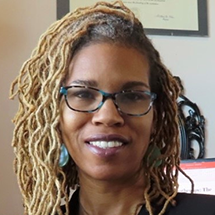Using a multimodal toolbox to advance the next generation of cancer treatment
Over the course of my lifetime, I have been fortunate enough to witness advances in our understanding of cancer and therapy that make long-term survival a real possibility for many patients. But cancer is complex, and as a scientist, I am inspired to build on the tremendous progress that has revolutionized care to address the new challenges that cancer continues to throw at us.
I knew I wanted to be a part of the cancer crusade during my early years in graduate school, when I first learned how immune players, like killer-T cells, could have significant implications for treatment. It was this intersection of the complexity of the immune system and how it informs cancer therapy that hooked me and continues to propel my research and career in translational medicine at Bristol Myers Squibb.
As a senior scientific director in translational medicine, my team, which includes some of the most curious minds in the industry, is interrogating key biologic pathways in the immune system to test hypotheses and aggressively pursue new approaches to treat cancer using checkpoint inhibition. Since the approval of the first immune checkpoint inhibitor developed and launched by Bristol Myers Squibb more than 10 years ago, we have put our collective efforts together to deepen this legacy by optimizing this modality to include dual combinations that have complementary effects to combat cancer. This has led to approvals of dual blockade of cytotoxic T-lymphocyte–associated antigen 4 (CTLA-4) and PD-1 for the treatment of multiple cancers and more recently approval of dual blockade of PD-1 and lymphocyte activation gene-3 (LAG3) in melanoma. As they say, sometimes two heads – or in this case, two pathways – are better than one to solve a problem.
At Bristol Myers Squibb, we channel our inspiration into exploration to build what we call our “toolbox” of assets. This unique collection of assets spans multiple modalities, such as T cell checkpoint inhibitors, tumor intrinsic targets and protein degradation, cell therapy, immune cell engagers and antibody drug conjugates, as well as other novel targets in cancer pathways, to provide the best possible outcomes for patients.
One of the reasons I love coming to work at Bristol Myers Squibb every day is the collaboration with my fellow scientists. We all have the same insatiable drive to dig deep into disease biology to truly understand cancer and battle it from multiple angles. As problem solvers seeking to answer some of the biggest challenges in cancer, we pursue broad research approaches that allow us to explore the potential of our early discoveries, no matter the platform. As a pioneer in the protein degradation field, we have deep biological knowledge of protein degradation pathways and one of the most extensive chemical libraries in the world. Through translational medicine, we are making precision medicine a reality for more patients by deepening our understanding of disease biology, including advancing research into novel immune-cell engagers capable of redirecting the patient’s immune effector cells toward cancer cells. The immune cell engager landscape - which includes both T cell engagers and NK cell engagers - is one of the fastest evolving modalities for cancer treatment, particularly in both hematologic malignancies and solid tumors.
Like building blocks or Legos, there are multiple opportunities for how to use our integrated multi-modality toolbox to build upon our legacy of aggressively pursuing new approaches – alone or in combination – and our precise interrogation of key biologic pathways and targets to help fuel the next wave of innovation in cancer drug discovery. Together, this creates a roadmap for us to continue to investigate novel cancer targets and approaches to overcome resistance, such as the fucosyl-GM1 pathway, immunoglobulin-like transcript (ILT) 4, and melanoma-associated antigen 4 or 8 (MAGEA4/8).
This type of forward-thinking science is what first drew me into research, and the collaborative culture - where diverse perspectives and experiences are valued - is what continues to drive my passion at Bristol Myers Squibb. I truly feel empowered by my team and my colleagues to continue pursuing biology-driven scientific ideas that have the potential to blossom into the next generation of cancer therapeutics. Great insights come in all colors, shapes and sizes, and I look forward to working with the greatest minds in the industry to advance our cancer crusade, one day at time.

Charlie Garnett-Benson
Senior Scientific Director, Translational Medicine
Subscribe to Our stories alerts
Beyond just relevant information about Bristol Myers Squibb's therapeutic areas and innovation, Our stories offer a window into the work our employees do every day for patients.
About Bristol Myers Squibb
Bristol Myers Squibb is a global biopharmaceutical company whose mission is to discover, develop and deliver innovative medicines that help patients prevail over serious diseases. As global citizens, we work sustainably and responsibly to create a positive impact in the communities where we live and work.



